Maximizing Productivity: Integrating AI Agents into Your Business Strategy
In today’s competitive business environment, artificial intelligence (AI) agents have emerged as powerful tools for enhancing productivity and driving innovation. This article explores how businesses can strategically implement AI agents to transform their operations and achieve sustainable growth.
Understanding AI’s Business Value
AI agents have evolved from simple automation tools to sophisticated systems capable of complex decision-making and human-like interactions. Modern AI leverages machine learning, natural language processing, and predictive analytics to deliver value across virtually all business functions.
The key benefits include:
- Operational Efficiency: AI systems process information continuously without fatigue, maintaining consistent performance 24/7
- Data-Driven Insights: AI analyzes vast datasets to identify patterns and generate actionable business intelligence
- Enhanced Customer Experiences: Personalized interactions at scale through intelligent automation
- Workforce Augmentation: Freeing human talent from routine tasks to focus on creative and strategic activities
Strategic Implementation Framework
1. Identify High-Value Opportunities
Begin by targeting processes where AI can deliver significant impact:
- High-volume repetitive tasks
- Data-intensive operations
- Time-sensitive activities
- Error-prone processes
- Customer-facing functions requiring personalization
2. Define Clear Objectives
Align AI initiatives with specific business outcomes:
- Reduce processing times by a target percentage
- Improve accuracy rates in quality control
- Enhance customer satisfaction metrics
- Enable personalized experiences with measurable results
3. Address Technical Requirements
Consider these critical factors:
- Build vs. Buy: Evaluate whether to develop custom solutions or implement existing platforms
- Data Strategy: Ensure access to high-quality, structured data for training and operation
- Integration: Plan how AI will connect with existing systems and workflows
- Scalability: Design solutions that can grow with your business needs
4. Manage Organizational Change
The human element is often the most challenging aspect:
- Communicate clearly how AI will augment rather than replace employees
- Develop training programs to help staff work effectively with AI
- Create feedback channels for continuous improvement
- Celebrate early successes to build momentum
Implementation Success Stories
Customer Service Transformation
A telecommunications company implemented AI virtual agents for tier-one support, resulting in:
- 40% faster resolution times
- 35% reduction in call volume
- Higher customer satisfaction
- Human agents focusing on complex issues requiring empathy
Supply Chain Optimization
A manufacturer deployed AI to analyze supply chain data, achieving:
- 28% reduction in excess inventory
- 15% improvement in on-time deliveries
- Enhanced resilience during disruptions
Sales Process Enhancement
A B2B technology firm integrated AI into its sales process, resulting in:
- 22% increase in conversion rates
- 30% shorter sales cycles
- More personalized prospect engagement
Overcoming Implementation Challenges
Managing Complexity
- Start with pilot projects to identify issues early
- Implement robust testing across diverse scenarios
- Establish feedback loops for continuous improvement
Ethical Considerations
- Audit systems regularly for unintended bias
- Maintain clear privacy policies
- Ensure appropriate human oversight
- Conduct regular ethical reviews
Integration with Legacy Systems
- Develop API layers for seamless interaction
- Consider phased implementation approaches
- Leverage cloud solutions to bridge technology gaps
Future Trends
As AI technology continues to advance, businesses should prepare for:
- More autonomous AI systems capable of complex decision-making
- Enhanced human-AI collaboration models
- Democratized AI development through low-code platforms
- Ambient intelligence embedded throughout the business environment
Conclusion
Strategic integration of AI agents represents a transformative opportunity for businesses to enhance productivity and gain competitive advantage. The most successful implementations view AI not merely as an automation tool but as a catalyst for new business models and enhanced human capabilities.
While implementation challenges exist, the potential rewards—in efficiency, innovation, customer experience, and market position—make AI integration an essential strategy for forward-thinking organizations. By taking a thoughtful, strategic approach to AI implementation, businesses can navigate the complexities while positioning themselves for success in an increasingly AI-enhanced future.


